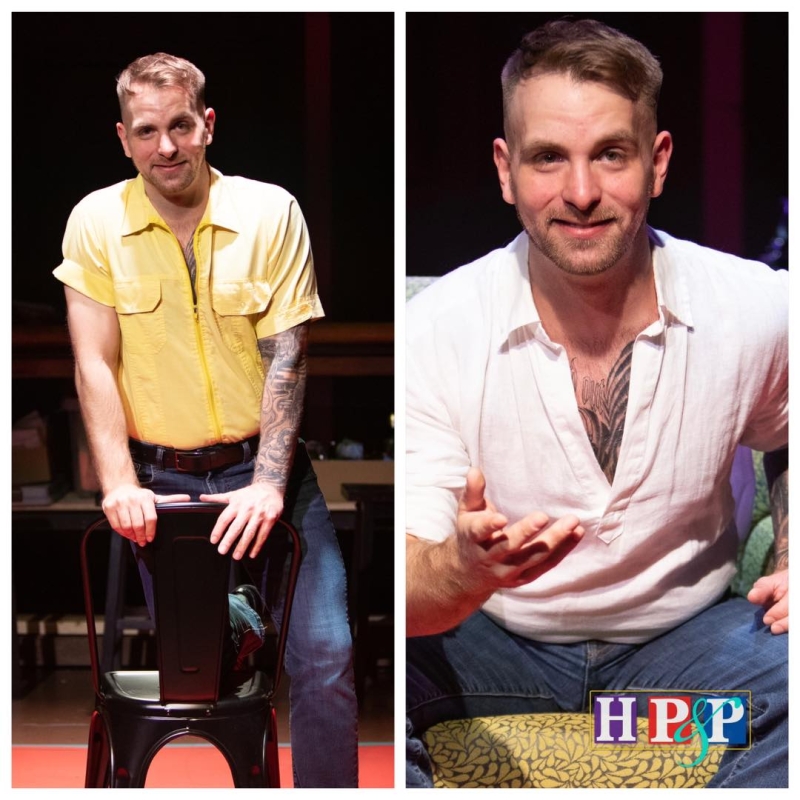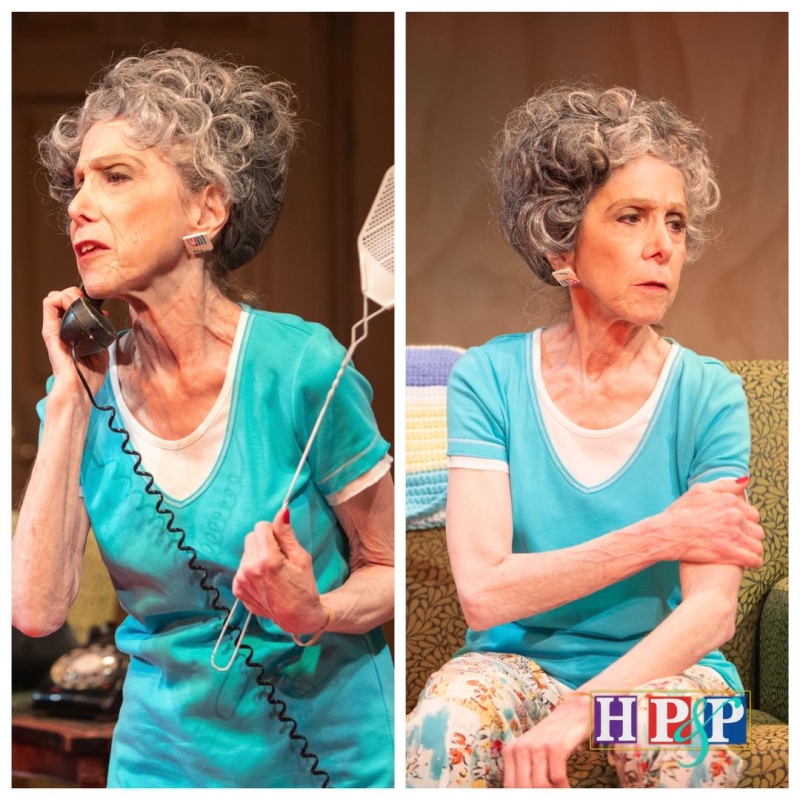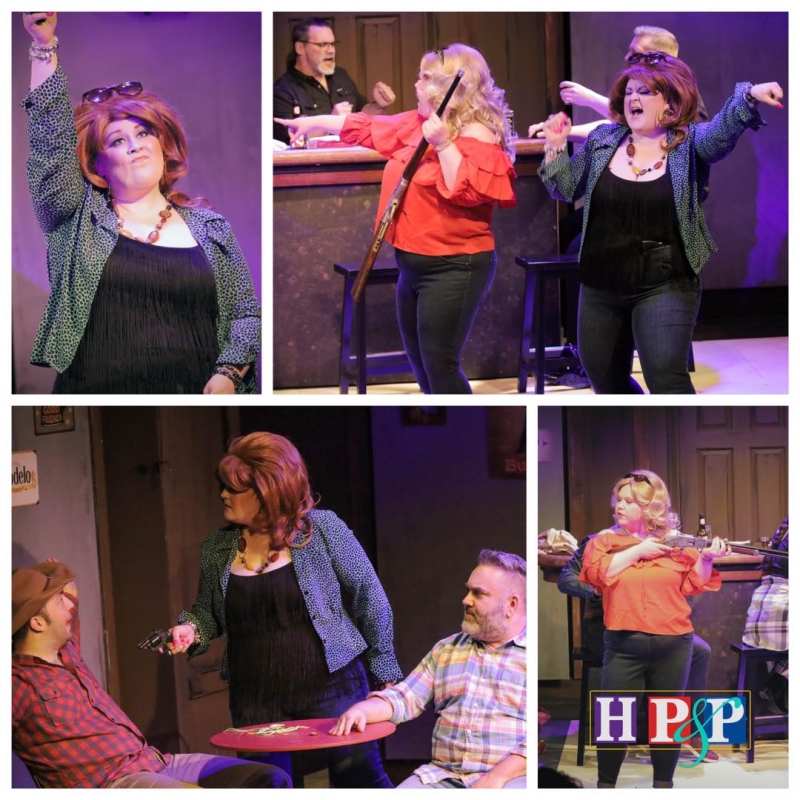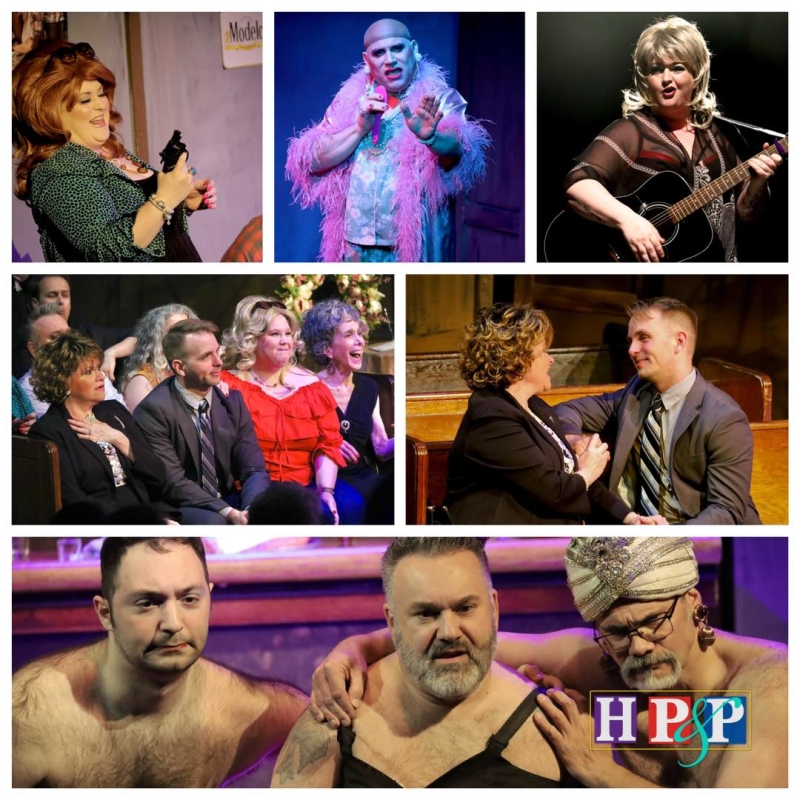Review: 'SORDID LIVES' at Haddonfield Plays & Players Is A Rootin' Tootin' Good Time
Labeled as “a black comedy about white trash,”Sordid Lives, though by name sounds like an unsavory show, is in actuality an enjoyable hootenanny.

Labeled as “a black comedy about white trash,”Sordid Lives, though by name sounds like an unsavory show, is in actuality an enjoyable hootenanny. The setting is July 1988 in small-town Winters, Texas and everyone’s lives have been upturned by the peculiar passing of family matriarch, Peggy. Peggy was a good Christian woman who hits her head on the sink and bleeds to death after tripping over her lover’s wooden legs in a motel room.The show chronicles the lives of Peggy’s family and associates from the time of her passing to her funeral as everyone tries to make sense of the nonsensical death.
From the top of the show, the audience gets involved and is encouraged to sing along as Sarah Lottes as Bitsy Mae Harling belts out “ain’t it a b*tch!” setting the tone for the show as she croons about sordid lives. In the duration of the show, each scene transition is also accompanied by more of Lottes’ serenades.

Each chapter in the play begins with a monologue by Ken Hellings who sweetly portrays Ty Williamson, a homosexual actor who escapes from his hometown of Winters, Texas to pursue his dream of acting in the Big Apple.Ty tells the tale of his sordid family to the audience as if they are his unseen therapist.
In Chapter One, Sissy, hilariously played by Phyllis Josephson, fights her nicotine fit after she unknowingly quits smoking only days before her sister’s death. In this scene the audience finds out the salacious circumstances surrounding Peggy’s death, having passed during a risque rendezvous with her married neighbor GW (played by Anthony Appel). We also hear from the uptight Latrelle Williamson (played vivaciously by Tami Gordon-Funkhouser) who refuses to allow her mother to be buried in a Mink Stole in summer and denies the homosexuality of her aforementioned son, Ty.

The excitement continues in Chapter Two, where in a Thelma and Louise-style flourish, best friends Noletta Nethercott and Lawonda Dupree (played by Amanda Frederick and Kristine L. Bonaventura respectively) hysterically force GW, Wardel Owens, and Odell Owens (Appel, Stephen Kreal and Jared Camacho) to strip their clothes, wear women’s accessories and makeup, and dance with each other as the duo brandish guns in one of the most uproarious scenes in the show.
Chapter Three focuses on the attempt to de-homosexualize Earl “Brother Boy” Ingram played by the brilliant Edwin Ortiz. Brother Boy has been banished to an asylum for his homosexuality and transvestism. His hyper-sexual therapist Dr. Eve Bolinger, played by Amber Stolarski, tries to encourage Brother Boy to be straight by throwing herself at him, much to his dismay and disgust.
In the last scene, we are finally at Peggy’s funeral where the cast of colorful characters is reunited in front of the deceased’s open casket. To everyone’s surprise, not only does Brother Boy make it out of the asylum for the viewing, but Latrelle’s son Ty also makes an appearance.

Noletta Nethercott and Lawonda Dupree
With mild cursing and some adult themes, this show is definitely not for the kiddos. But it is a rootin’ tootin’ good time. From the time the audience steps into the theatre to the time the cast does its line dance curtain call (choreographed by Jennifer Gordon), it is sure to keep a smile on your face.
Haddonfield Plays and Players prides itself on being a “professional quality theatre with a community spirit” and HP&P’s production of Del Shores’ Sordid Lives proves to be an evening showcasing that the theatre is anything but disreputable.
HP&P mostly lives up to its claim of professional quality through its pool of versatile, talented, and committed actors. Bill C. Fikaris directs the play. In his note in the playbill, Fikaris writes “I love this play! Del Shores is so adept at creating unique characters that are hysterically funny one miute, and then when you don’t expect it, pull at our heartstrings and have you sobbing.” And Fikaris’ actors do an excellent job at embodying the characters even down to Appel’s stiff leg movement as if his legs are wooden. The actors are as dynamic as the characters they portray. Rounding out the cast are Evan Harris as Bobby Ray Barnes, Lisa Croce as Juanita, Henry Smith as Reverend Barnes, and Evan Long, Jessica Brotherton and Cassidy Scherz in the ensemble.
Fikaris’ blocking and vision are effective. The show has excellent pacing and is a side-splitting two and a half hours of sordid splendor. For dealing with some heavy issues such as grief, infidelity, closeted sexuality, self-loathing, and parenthood among others, it is a very fun and funny show.

Chris Miller flexes his muscles as more than just the theatre’s Artistic Director. He also designed the production’s set which seamlessly unfurls and unfolds from Sissy’s living room, to the local bar, to Dr. Eve Bolinger’s office, and finally the Southside Baptist Church. All of the sets are impressively fully realized in design and feature the Texas flag as a fixed focal-point on the floor.
It is also important to note Ryan PJ Mulholland’s impeccable wig and costume design of the show which perfectly enhanced the actor’s portrayal of their respective characters.
Fikaris ends his Director’s Note by saying “I can only hope that this production helps us to promote acceptance of the myriad of people and lifestyles that exists today, And finally, I hope that it will encourage people to embrace and live the life they want to lead.”
Sordid Lives plays now through June 3rd at Haddonfield Plays & Players in Haddonfield, NJ. For more information and to purchase tickets please visit www.haddonfieldplayers.com
Reader Reviews

Videos
